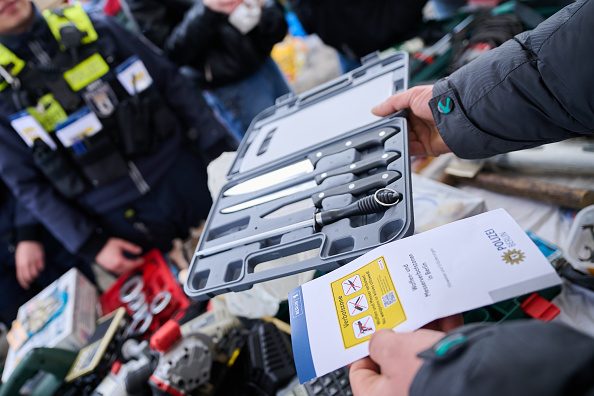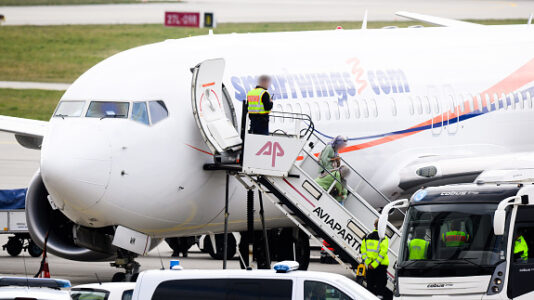In the wake of a deadly knife attack by a Syrian migrant on the Berlin U-Bahn this weekend, the city’s government has responded with a puzzling call for more knife ban zones.
On Saturday, a dispute between two men on the U12 subway line turned fatal when a 43-year-old Syrian man fatally stabbed a 29-year-old passenger with a kitchen knife. Police apprehended and shot the attacker shortly afterward; he died from his injuries in hospital on Sunday morning.
A day after the attack, Berlin’s Senator for the Interior, Iris Spranger (SPD), announced that the state government would look into expanding knife and weapon prohibition zones to include public transport.
“Regardless of yesterday’s homicide, we are examining the establishment of further knife and weapon ban zones in Berlin,” Spranger told Tagesspiegel, implying the solution to an increase in violent attacks is more regulations.
Currently, Berlin has three knife prohibition zones — Leopoldplatz, Görlitzer Park, and Kottbusser Tor — areas in which police have seized a total of 95 knives and weapons since the rules took effect on Feb. 15. Within these zones, police are allowed to conduct stop-and-search identity checks without initial suspicion.
Spranger suggested that similar measures could be adopted on trains and in stations, emphasizing that these zones serve as both an effective deterrent and a “signal to urban society” that such attacks would not be tolerated.
What remains unclear is how, exactly, telling people not to bring knives onto public transport will dissuade those already willing to commit violent crimes. Spranger did not provide details on enforcement, leaving the practical question of how police would monitor the entire public transport network unanswered.
Police union representatives were quick to criticize the senator’s plan. Benjamin Jendro, spokesperson for the Berlin Police Union (GdP), described the proposal as “too short-sighted,” bluntly remarking that incidents like Saturday’s fatal stabbing demonstrate how “placebo” knife ban zones do little to prevent determined attackers. He further noted that carrying knives and weapons is already prohibited under the BVG’s own rules — a rule that did not prevent Saturday’s fatal assault.
“The police, however, will not be able to control this permanently and comprehensively in the future,” Jendro said.
Knife-free zones are also in force in neighboring Austria. However, the policy also failed to prevent a knife attack by a 42-year-old Turkish national in the Favoriten district of Vienna on Sunday.
The man managed to injure two police officers before he was finally arrested; however, the opposition Freedom Party claimed the incident was proof that knife-free zones are wholly ineffective.
FPÖ security spokesman Gernot Darmann described the existing zones as “bizarre and absurd,” and claimed the “simply toothless” policy does nothing to protect the overall population.






